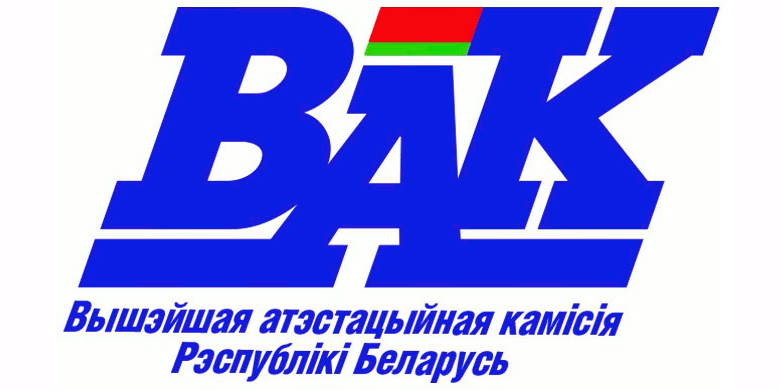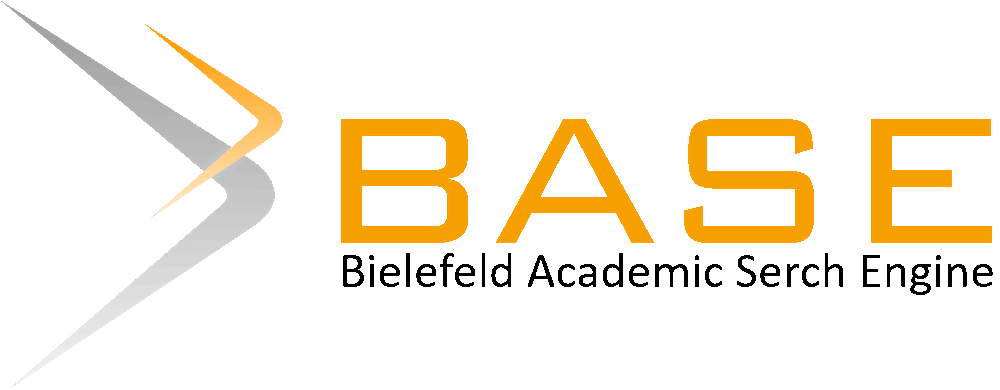Концептуальные основы системы управления материальными ресурсами в сельском хозяйстве
Ключевые слова:
система управления, материальные ресурсы, сельское хозяйство, эффективность, оценка, инструментарий, цифровая экономикаАннотация
Целью исследования является развитие теоретико-методологических и практических основ по созданию эффективной системы управления материальными ресурсами в сельском хозяйстве. Материалы и методы. Теоретической и методической основой для исследований послужили труды отечественных ученых по вопросам управления материальными ресурсами в сельском хозяйстве; информационной базой являлись нормативные и правовые акты Республики Беларусь, данные Национального статистического комитета Республики Беларусь и бухгалтерской отчетности сельскохозяйственных организаций. В процессе исследований применялись следующие методы: монографический, абстрактно-логический, нормативный, логистический, синтеза и системного анализа, экспертных оценок и др. Результаты исследований содержат принципиальные новшества, которые заключаются: во-первых, в авторской позиции в части формирования эффективности системы управления материальными ресурсами, суть которой содержится в генерировании условий благоприятной конкурентной среды для ведения агробизнеса и усилении конкурентных преимуществ отдельных сельскохозяйственных производителей; во-вторых, в обосновании инструментария реализации целей и задач эффективной системы управления материальными ресурсами в агропромышленном производстве с учетом достижения национальной безопасности; в-третьих, в предложении методики обоснования комплексной системы анализа и оценки сформировавшихся уровней материальных затрат в сельском хозяйстве и в его отраслях; в-четвертых, в развитии научно-методологических решений освоения цифрового уклада в сельском хозяйстве через создание информационных баз данных. Заключение. Разработка научных положений формирования эффективной системы управления материальными ресурсами в сельском хозяйстве позволила сделать следующие выводы: 1) предложены научные основы формирования эффективной системы управления материальными ресурсами для сельского хозяйства, включающие обоснованные цели и задачи системы управления материальными ресурсами в сельском хозяйстве в рамках национальной экономики и инструменты для их реализации; 2) конкретизированы положения по освоению цифровой экономики в агропромышленное производство применительно к управлению материальными ресурсами; 3) рассчитаны рекомендуемые уровни показателей оценки материальных затрат в сельском хозяйстве.
Библиографические ссылки
Бельский, В.И. Экономический механизм государственного регулирования сельскохозяйственного производства: теория, методология, практика / В.И. Бельский. – Минск: Институт системных исследований в АПК НАН Беларуси, 2018. – 265 с.
Буць, В.И. Теоретические и практические аспекты управления ресурсосбережением в агропромышленном производстве / В.И. Буць, Л.А. Таптунов. – Горки: БГСХА, 2018. – 174 с.
Воробьев, В.А. Эффективность использования ресурсов в сельскохозяйственном производстве Беларуси: анализ на основе производственных функций / В.А. Воробьев, А.М. Филипцов // Экономика, моделирование, прогнозирование: сборник научных трудов / Государственное научное учреждение «Научно-исследовательский экономический институт Министерства экономики Республики Беларусь». – Минск: НИЭИ Министерства экономики Республики Беларусь, 2007. – Вып. 1. – С. 165-174.
Гусаков, В.Г. Агропромышленный комплекс Беларуси в условиях трансформационной экономики / В.Г. Гусаков, А.П. Шпак // Белорусский экономический журнал. – 2018. – № 4. – С. 54–64.
Жудро, М.К. Смарт-экономика и бизнес-структурирование / М.К. Жудро, Н.В. Жудро // Научные труды Белорусского государственного экономического университета / Министерство образования Республики Беларусь. – 2018. – Вып. 11. – С. 178–185.
Исследование методологии формирования показателей сравнительной эффективности сельскохозяйственного производства / Я.Н. Бречко [и др.] // Проблемы научного обеспечения современного развития АПК: вопросы теории и методологии / В. Г. Гусаков [и др.]; под ред. В. Г. Гусакова. – Минск: Ин-т систем. исслед. в АПК НАН Беларуси, 2015. – С. 16–23.
Константинов, С.А. Система показателей оценки деятельности сельскохозяйственных организаций / С.А. Константинов // Сборник научных трудов «Проблемы экономики». – Минск: Институт системных исследований в АПК НАН Беларуси, 2013. – № 1 (16). – С. 83-90.
Леньков, И.И. Экономико-математическое моделирование систем и процессов в АПК: учебное пособие / И.И. Леньков, Р.К. Ленькова. – Горки: БГСХА, 2002. – 120 с.
Ленькова, Р.К. Эконометрика и экономико-математические методы и модели: курс лекций в 3 ч. / Р.К. Ленькова. – Горки: БГСХА. – Ч. 1. – 2017. – 60 с.
Макрак, С. SMART-система управления материальными ресурсами в условиях развития циркулярной аграрной экономики в Республике Беларусь / С. Макрак // Наука и инновации. – 2020. – № 7. – С. 73–78; № 8. – С. 54–58.
Макрак, С. Цифровизация экономики как этап внедрения SMART-системы управления материальными ресурсами / С. Макрак // Аграрная экономика. – 2020. – № 3. – С. 41–51.
Макрак, С.В. Методические основы к проведению комплексного анализа материальных ресурсов в сельском хозяйстве в Республике Беларусь/ С.В. Макрак // Молодежь и научно-технический прогресс: сб. докл. ХII Междунар. науч.-практ. конф. студентов, аспирантов и молодых ученых, 18 апр. 2019 г.: в 3 т.; сост.: Е.Н. Иванцова, В.М. Уваров [и др.]. – Губкин, Старый Сокол: ООО «Ассистент плюс», 2019. – Т. 2. – С. 271–275.
Макрак, С.В. Научные основы совершенствования системы управления материально-денежными ресурсами при производстве сельскохозяйственной продукции / С.В. Макрак // Вес. Нац. акад. навук Беларусі. Сер. аграр. навук. – 2019. – № 2. – С. 135–150.
Становление и развитие цифровой трансформации и информационного общества (ИТ-страны) в Республике Беларусь / Р.Б. Григянец [и др.]; ред. В.Г. Гусаков; рец.: С.В. Абламейко, А.В. Тузиков; Национальная академия наук Бeлapуcи, Объединенный институт проблем информатики. – Минск: Беларуская навука, 2019. – 226 с.
Шумилин, А.Г. Приоритет – инновационное развитие / А.Г. Шумилин // Беларуская думка. – 2018. – № 11. – С. 3–12.
Research and development in agricultural robotics: A perspective of digital farming / R.R. Shamshiri [et al.] // Int. J. Agric. Biol. Eng. – 2018. – Vol. 11. – P. 1–14.
Wolfert, S. Big Data in Smart Farming – A review / S. Wolfert, L. Ge, C. Verdouw, M.-J. Bogaardt // Agric. Syst. –2017. – Vol. 153. – P. 69–80.
References
Bel'skij V.I. Ekonomicheskij mekhanizm gosudarstvennogo regulirovaniya sel'skohozyajstvennogo proizvodstva: teoriya, metodologiya, praktika [Economic mechanism of state regulation of agricultural production: theory, methodology, practice]. Minsk, Institut sistemnyh issledovanij v APK NAN Belarusi, 2018, 265 p. (In Russian)
Buc' V.I., Taptunov. L.A. Teoreticheskie i prakticheskie aspekty upravleniya resursosberezheniem v agropromyshlennom proizvodstve [Theoretical and practical aspects of resource conservation management in agro-industrial production]. Gorki, BGSKHA, 2018, 174 p. (In Russian)
Vorob'ev V.A., Filipcov A.M. Effektivnost' ispol'zovaniya resursov v sel'skohozyajstvennom proizvodstve Belarusi: analiz na osnove proizvodstvennyh funkcij [Resource efficiency in agricultural production in Belarus: analysis based on production functions]. Ekonomika, modelirovanie, prognozirovanie: sbornik nauchnyh trudov [Economics, modeling, forecasting]. Minsk, NIEI Ministerstva ekonomiki Respubliki Belarus', 2007, no. 1, pp. 165-174 (In Russian)
Gusakov V.G., Shpak A.P. Agropromyshlennyy kompleks Belarusi v usloviyakh transformatsionnoy ekonomiki [Agro-industrial complex of Belarus in the conditions of transformational economy]. Belorusskiy ekonomicheskiy zhurnal [Belarusian Economic Journal]. 2018, no 4, pp. 54–64. (In Russian)
Zhudro M.K., Zhudro N.V. Smart-ekonomika i biznes-strukturirovaniye [Smart Economics and business structuring]. Nauchn•yye trudy Belorusskogo gosudarstvennogo ekonomicheskogo universiteta [Scientific papers of the Belarusian state University of Economics], 2018, no. 11, pp. 178—185. (In Russian)
Brechko YA.N., Golovach A.A., Makrak S.V., Sednev E.V., Ivanovich E.A. Issledovanie metodologii formirovaniya pokazatelej sravnitel'noj effektivnosti sel'skohozyajstvennogo proizvodstva [Research of the methodology of formation of indicators of comparative efficiency of agricultural production]. Problemy nauchnogo obespecheniya sovremennogo razvitiya APK: voprosy teorii i metodologii [Problems of scientific support of modern agricultural development: theory and methodology]. Minsk: Institut sistemnyh issledovanij v APK NAN Belarusi, 2015, pp. 16–23 (In Russian)
Konstantinov S.A. Sistema pokazatelej ocenki deyatel'nosti sel'skohozyajstvennyh organizacij [System of indicators for evaluating the activities of agricultural organizations] / Sbornik nauchnyh trudov "Problemy ekonomiki" [Collection of scientific papers "Problems of economy"]. Minsk, Institut sistemnyh issledovanij v APK NAN Belarusi, 2013, no. 1 (16), pp. 83-90. (In Russian)
Len'kov I.I., Len'kova R.K. Ekonomiko-matematicheskoe modelirovanie sistem i processov v APK [Economic and mathematical modeling of systems and processes in the agro-industrial complex: textbook]. Gorki, BGSKHA, 2002, 120 p. (In Russian)
Len'kova R.K. Ekonometrika i ekonomiko-matematicheskie metody i modeli [Econometrics and economic and mathematical methods and models]. Gorki, BGSKHA, 2017, 60 p. (In Russian)
Makrak S. SMART-sistema upravleniya material'nymi resursami v usloviyakh razvitiya tsirkulyarnoy agrarnoy ekonomiki v Respublike Belarus' [SMART-material resource management system in the conditions of development of the circular agricultural economy in the Republic of Belarus]. Nauka i innovatsii [Science and innovation], 2020, no. 7, pp. 73–78, no. 8, pp. 54–58. (In Russian)
Makrak S. Tsifrovizatsiya ekonomiki kak etap vnedreniya SMART-sistemy upravleniya material'nymi resursami [Digitalization of the economy as a stage of implementing a SMART system for managing material resources]. Agrarnaya ekonomika [Agrarian economy], 2020, no. 3. pp. 41–51. (In Russian)
Makrak S.V. Metodicheskiye osnovy k provedeniyu kompleksnogo analiza material'nykh resursov v sel'skom khozyaystve v Respublike Belarus' [Methodological bases for conducting a comprehensive analysis of material resources in agriculture in the Republic of Belarus]. Trudy mezhdunarodnoy prakticheskoy konferentsii «Molodezh' i nauchno-tekhnicheskiy progress». Ed. YE.N. Ivantsova, V.M. Uvarov [i dr.], et. Gubkin, 2019, no. 2, pp. 271–275. (In Russian)
Makrak S.V. Nauchnye osnovy sovershenstvovaniya sistemy upravleniya material'no-denezhnymi resursami pri proizvodstve sel'skohozyajstvennoj produkcii [Scientific bases for improving the management system of material and monetary resources in the production of agricultural products]. Vesci Nacyanal'naj Akademii Navuk Belarusi. Seryya Agrarnyh Navuk [Proceedings of the national Academy of Sciences of Belarus. Agrarian Series], 2019, no. 2, pp. 135–150. (In Russian)
Grigyanec R.B. (et al.) Stanovlenie i razvitie cifrovoj transformacii i informacionnogo obshchestva (IT-strany) v Respublike Belarus' [Formation and development of digital transformation and information society (it country) in the Republic of Belarus]. Minsk, Belaruskaya navuka, 2019, 226 p. (In Russian)
SHumilin A.G. Prioritet – innovacionnoe razvitie [Priority-innovative development]. Belaruskaya dumka [Belorusskaya Dumka], 2018, no. 11, pp. 3–12. (In Russian)
Research and development in agricultural robotics: A perspective of digital farming. R.R. Shamshiri [et al.]. Int. J. Agric. Biol. Eng. 2018, vol. 11, pp. 1–14.
Wolfert S., Wolfert, Ge L., Verdouw C., Bogaardt M. -J. Big Data in Smart Farming – A review. Agric. Syst, 2017, Vol. 153, pp. 69–80.
Загрузки
Опубликован
Как цитировать
Выпуск
Раздел
Лицензия
Автор предоставляет Редакции журнала на весь срок действия исключительных прав на Произведение следующие права:
1. право на воспроизведение Произведения (опубликование, обнародование, дублирование, тиражирование или иное размножение Произведения) без ограничения тиража экземпляров. При этом каждый экземпляр Произведения должен содержать имя автора Произведения;
2. право на распространение Произведения любым способом;
3. право на включение в составное произведение;
4. право на доведение до всеобщего сведения;
5. на использование метаданных (название, имя автора (правообладателя), аннотации, библиографические материалы и пр.) Произведений путем распространения и доведения до всеобщего сведения, обработки и систематизации, а также включения в различные базы данных и информационные системы.
6. право переуступить на договорных условиях частично или полностью полученные по настоящему договору права третьим лицам без выплаты Автору вознаграждения.
Автор передает права Редакция журналау по настоящему Договору на основе неисключительной лицензии.
Редакция журнала обязуется соблюдать предусмотренные действующим законодательством авторские права, права Автора, а также осуществлять их защиту и принимать все возможные меры для предупреждения нарушения авторских прав третьими лицами.
Территория, на которой допускается использование прав на Произведения, не ограничена.
Автор также предоставляет Редакция журналау право хранения и обработки следующих своих персональных данных без ограничения по сроку:
• фамилия, имя, отчество;
• дата рождения;
• сведения об образовании;
• сведения о месте работы и занимаемой должности;
• сведения о наличии опубликованных произведений литературы, науки и искусства.
Персональные данные предоставляются для их хранения и обработки в различных базах данных и информационных системах, включения их в аналитические и статистические отчетности, создания обоснованных взаимосвязей объектов произведений науки, литературы и искусства с персональными данными и т.п.
Редакция журнала имеет право передать указанные данные для обработки и хранения третьим лицам при условии уведомления о таком факте с предоставлением сведений о третьем лице (наименование и адрес) Автору.
Отзыв согласия на хранение и обработку персональных данных производится Автором путем направления соответствующего письменного уведомления Редакции журнала.
Автор и Редакция журнала несут в соответствии с действующим законодательством Республики Беларусь имущественную и иную юридическую ответственность за неисполнение или ненадлежащее исполнение своих обязательств.
Сторона, ненадлежащим образом исполнившая или не исполнившая свои обязанности, обязана возместить убытки, причиненные другой Стороне, включая упущенную выгоду.
Все споры и разногласия Сторон, вытекающие из условий настоящего Договора, подлежат урегулированию путем переговоров, а в случае их безрезультатности, указанные споры подлежат разрешению в суде в соответствии с действующим законодательством Республики Беларусь.
Расторжение настоящего соглашения возможно в любое время по обоюдному согласию Сторон, с обязательным подписанием Сторонами соответствующего соглашения об этом.
Расторжение настоящего соглашения в одностороннем порядке возможно в случаях, предусмотренных действующим законодательством, либо по решению суда.
Во всем, что не предусмотрено настоящим соглашением, Стороны руководствуются нормами действующего законодательства Республики Беларусь.















.gif)
